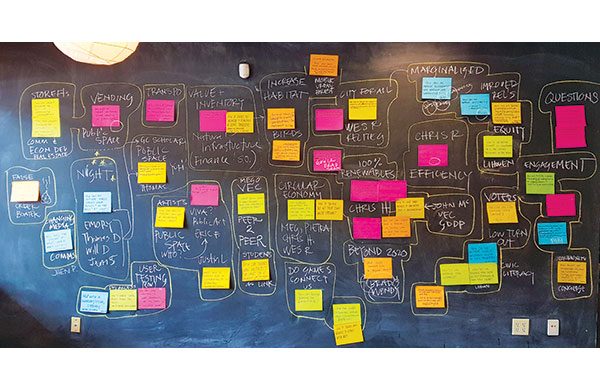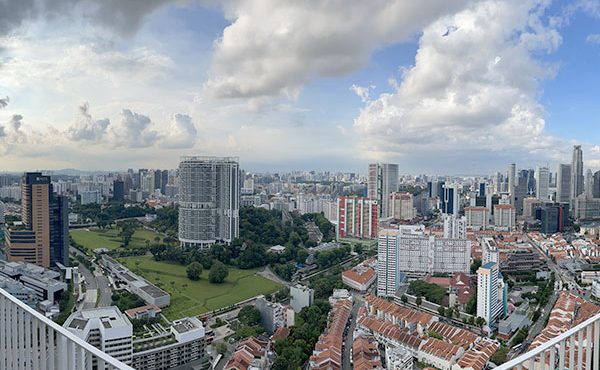
Since its founding in 2011, CityStudio Vancouver has demonstrated a unique ability to connect City of Vancouver staff with post-secondary faculty, researchers and students in valuable innovation opportunities—for both the municipality and participants alike—on progressive urban initiatives. The numbers tell the story, with 250 City staff, almost 5,600 students, and nearly 300 faculty engaged in more than 800 projects and almost 150,000 hours of public sector innovation in a unique approach to city-campus collaboration.
Originally created in response to Vancouver’s sustainability goals through the Greenest City 2020 Plan, CityStudio now brings six of Vancouver’s academic institutions to the table in all areas of city-building, helping create innovative prototypes that lead to greater learning and permanent solutions in local communities. As a strategic partnership framework, CityStudio facilitates experimentation inside City Hall, uniting city staff with post-secondary researchers, students, faculty and community to co-create solutions for key city challenges. Progress made on implementing many strategic municipal policy initiatives can be traced back to research and projects co-created with City staff and students.
Receiving multiple awards, CityStudio Vancouver has been recognized globally as a successful framework for uniting the municipal and post-secondary sectors. A big credit for its success goes to the bold, early leadership and commitment of the previous Vancouver Mayor, City Council and staff, and this support continues with the current Mayor and Council. City halls must be champions of this kind of program for several reasons, including embedding participation in the corporate culture and signalling a commitment to partnerships with academic institutions—helping get students and faculty engaged in practical urban problem-solving.
In addition to Vancouver as the founding city, there are now eight CityStudios and one Hub operating in cities across Canada (Victoria, London, North Vancouver, Corner Brook, Hamilton, Abbotsford, Brantford, Waterloo, and Montreal). There are also two CityStudios operating in Australia (Bendigo and Logan), while the first European CityStudio opened this summer in Oslo, Norway.
With existing templates and guideline documents already developed, the CityStudio model is ideally positioned to continue to be replicated in other parts of Canada and worldwide. Scaling the CityStudio movement to more cities across Canada and globally would strengthen strategic research and engagement work in local governments, particularly in current municipal priority policy areas such as the climate crisis, resilient and green infrastructure, affordable housing and Indigenous reconciliation. This made-in-Vancouver program would also help extend Canadian learnings and know-how with cities around the world.
In Greece, Athens and Thessaloniki are prime examples of cities that would benefit from the CityStudio model. Part of the 100 Resilient Cities network, and with close ties to high-quality local and state universities, these two municipalities could work with students to identify innovative solutions to pressing urban issues such as economic development, sustainable tourism and refugee integration.
Local governments are playing an increasingly important role in tackling global challenges such as climate change, affordability, equity and reconciliation, and they cannot do it alone. Citizens, business and academia all need to play their part in being part of creative solutions to complex urban problems.
The CityStudio program is the best kind of strategic partnership there is: a model for global cities seeking innovative local solutions to global challenges through city-campus collaboration. Every city in the world needs a CityStudio.
***
For more information on CityStudio Vancouver, visit their website.
**
Marnie McGregor has more than two decades of global experience in municipal government, and works with government, non-profit and private sector clients in Europe and North America to provide government relations, stakeholder, communications and funding strategies. She divides her time between Vancouver and Athens.




